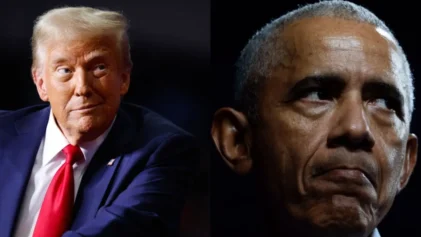By crafting a policy that will allow young illegal immigrants a way to stay in the U.S. and avoid deportation, President Obama has made a move that Hispanics and many other immigrants have been pleading for him to do for a long time: Demonstrate that he feels strongly enough about their plight to take a stand for them.
While he has long talked a good game when it comes to immigration, Obama at the same time has deported more than 1.1 million illegal immigrants—the highest amount by any president since the 1950s, according to the New York Times.
So the president has finally taken steps to match his actions with his rhetoric. The White House executive order will immediately stop deportation measures for illegal immigrants who came to the United States before age 16, have lived here for at least five years, and are in school, are high school graduates or are military veterans in good standing. The immigrants must also be under 30 and have clean criminal records.
“They are Americans in their heart, in their minds, in every single way but one: on paper,” President Obama said Friday during the announcement in the White House Rose Garden. He stressed that it was a temporary measure, not a permanent solution to the immigration issues.
Of course, Republicans immediately went on the attack, with some conservatives even threatening lawsuits against the president for the executive order. But Republican challenger Mitt Romney had to tread carefully, questioning the legality of the executive order, rather than its content. Romney is trying to figure out how to eat into Obama’s huge advantage among Hispanics—an advantage that likely will just grow larger with the president’s move. Romney has to figure out how to oppose Obama’s move without alienating Hispanics and how to avoid alienating Hispanics without alienating the conservatives that he wooed during the primary with lots of tough anti-immigration talk.
According to the Pew Hispanic Center, a nonpartisan research group in Washington, as many as 1.4 million immigrants might be eligible for the new measure. The vast majority are Latinos, with about 70 percent born in Mexico.


